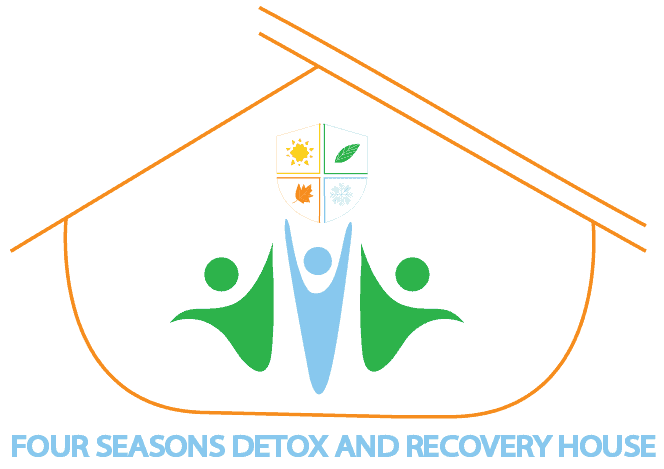What is Emotional Sobriety?
Emotional sobriety is a crucial aspect of the recovery process that goes beyond merely abstaining from substances. It involves developing a balanced, healthy emotional state that allows individuals to cope with life’s challenges without reverting to substance use. In this article, we’ll explore what emotional sobriety is, its stages, and strategies to achieve it. We’ll also discuss emotional addiction and the importance of long-term maintenance.
Understanding Emotional Sobriety
Emotional sobriety is the ability to experience and manage emotions in a healthy way without resorting to addictive behaviors. Unlike physical sobriety, which focuses on abstaining from substances, emotional sobriety emphasizes mental and emotional well-being. This concept was first introduced by Alcoholics Anonymous (AA) founder Bill W. in a letter where he discussed the importance of managing emotions for sustained recovery.
The Importance of Emotional Sobriety
Achieving emotional sobriety is vital because it helps individuals navigate life’s ups and downs without relying on drugs or alcohol. It fosters inner peace, improves relationships, and reduces the risk of relapse. Additionally, it allows people to live fulfilling lives, embracing both positive and negative emotions healthily.
Emotional Stages of Sobriety
Early Recovery
In the early stages of recovery, typically the first 90 days to a year, the focus is primarily on physical sobriety. Abstaining from substances is the main goal, and individuals may experience intense emotions as their bodies and minds adjust to sobriety. Strategies such as distraction with new hobbies can be helpful during this phase. Understanding the 6 stages of alcohol recovery is crucial for navigating this period effectively.
Middle Recovery
As recovery progresses, emotional sobriety becomes more critical. This stage involves dealing with unresolved emotions and past traumas. Without addressing these issues, individuals may experience “white-knuckling,” where they rely solely on willpower to stay sober, leading to an uncomfortable existence.
Long-Term Recovery
In long-term recovery, emotional sobriety should be a primary focus. Developing healthy coping mechanisms and emotional regulation skills is essential. This stage involves a continuous process of self-growth and emotional balance, which helps sustain long-term personal fulfillment.
Emotional Rehabilitation and Therapy
Therapy plays a significant role in achieving emotional sobriety. Different therapeutic approaches can help individuals address underlying emotional issues and develop healthier coping mechanisms. Here are some effective therapies:
- Cognitive Behavioral Therapy (CBT): Focuses on identifying and changing negative thought patterns and behaviors.
- Dialectical Behavior Therapy (DBT): Helps individuals manage emotions and improve relationships through mindfulness and acceptance.
- Acceptance and Commitment Therapy (ACT): Encourages acceptance of emotions and commitment to personal values.
Support groups like Alcoholics Anonymous (AA) and Narcotics Anonymous (NA) provide a community where individuals can share experiences and receive support, further aiding emotional rehabilitation. Participating in relapse prevention group activities can significantly bolster one’s journey.
Strategies for Achieving Emotional Sobriety
Achieving emotional sobriety involves various strategies that promote mental health and resilience. Here are some effective methods:
Mindfulness and Meditation
Mindfulness and meditation help individuals stay present and aware of their emotions without judgment. These practices teach people to observe their feelings and reactions, promoting emotional regulation and reducing stress.
Journaling
Journaling is a powerful tool for processing emotions. Writing down thoughts and feelings provides clarity and insight, helping individuals identify patterns and work through their emotions effectively. Journaling can be particularly beneficial during difficult times, providing a safe space to explore feelings.
Physical Activities
Engaging in physical activities like exercise and yoga can significantly benefit emotional sobriety. These activities promote overall well-being, reduce stress, and provide healthy outlets for emotional expression. Considering options like drug detox can also support physical and emotional health.
Healthy Coping Mechanisms
Developing and practicing healthy coping mechanisms is essential for maintaining emotional sobriety. This includes finding new hobbies, building strong support networks, and learning to manage stress effectively.
Avoiding Spiritual Bypass
Spiritual practices can support emotional sobriety, but it’s important to avoid using spirituality as a way to bypass mental issues. True spiritual growth involves facing and working through emotions rather than masking them. Exploring faith-based drug and alcohol rehab programs can provide comprehensive support.
Overcoming Emotional Addiction
Emotional addiction is the dependence on negative emotional states, such as anger, guilt, or shame, to feel alive or connected. Overcoming emotional addiction involves building emotional awareness and resilience. Strategies include:
- Identifying Triggers: Recognizing what triggers negative emotional states.
- Developing Emotional Awareness: Learning to identify and understand emotions as they arise.
- Building Resilience: Developing skills to cope with and recover from emotional setbacks.
Recovery and Long-Term Maintenance
Maintaining emotional sobriety requires continuous effort and commitment. Here are some key strategies:
Continuous Learning
Education about emotional health is a lifelong journey. Reading books, attending workshops, and staying informed about effective emotional regulation strategies contribute to personal development.
Building a Support System
Surrounding oneself with a supportive network of individuals who understand the recovery journey is crucial. This can include participation in relapse prevention group activities, therapy, and support groups like AA or NA.
Staying Present Through Mindfulness
Practicing mindfulness regularly helps individuals stay aware of the present moment and fully engage with their thoughts and emotions. This self-awareness is essential for managing negative emotions and preventing relapse.
Developing Healthier Coping Strategies
Replacing old, unhealthy coping mechanisms with constructive alternatives is fundamental to maintaining emotional sobriety. This might include engaging in physical exercise, seeking treatment, or pursuing creative activities. For comprehensive care, exploring dual diagnosis treatment can address both addiction and underlying mental health issues.
Conclusion
Emotional sobriety is a vital component of addiction recovery. It empowers individuals to manage their emotions healthily, reducing the risk of relapse and promoting overall well-being. By incorporating strategies like mindfulness, journaling, and building strong support systems, individuals can achieve and maintain mental health.
Ready to take the next step in your recovery journey? Contact Four Seasons Detox Drug and Alcohol Rehab center today and discover how our personalized programs can help you achieve lasting mental well-being.






